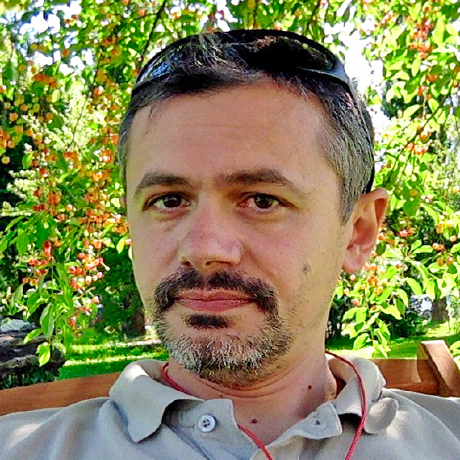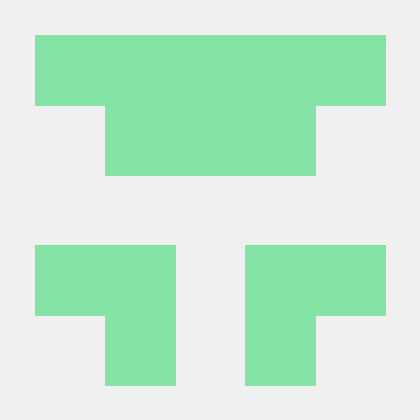@express-document-sdk / ContainerNode
Interface: ContainerNode
Interface for any node that contains an entirely generic collection of children. Some ContainerNode classes may host additional children in other specific "slots," such as background or mask layers; and non-ContainerNode classes may also hold children in specified "slots." Use Node.allChildren for read access to children regardless of node type.
Some ContainerNode classes may be full-fledged Node subclasses (such as Group), while others may be a subclass of the more minimal VisualNode (such as Artboard).
Extends
Accessors
addOnData
• get addOnData(): AddOnData
Get AddOnData reference for managing the private metadata on this node for this add-on.
Returns
allChildren
• get allChildren(): Readonly<Iterable<VisualNode, any, any>>
Returns a read-only list of all children of the node. General-purpose content containers such as ArtboardNode or
GroupNode also provide a mutable ContainerNode.children list. Other nodes with a more specific structure can
hold children in various discrete "slots"; this allChildren list includes all such children and reflects their
overall display z-order.
The children of a VisualNode are always other VisualNode classes (never the more minimal BaseNode).
Returns
Readonly<Iterable<VisualNode, any, any>>
allDescendants
• get allDescendants(): Readonly<Iterable<VisualNode, any, any>>
IMPORTANT: This is currently experimental only and should not be used in any add-ons you will be distributing until it has been declared stable. To use it, you will first need to set the experimentalApis flag to true in the requirements section of the manifest.json.
Helper to recursively traverse all the exposed scenegraph content within the subtree of this node. Every container node and every leaf node will be visited via a pre-order tree traversal. Although once called the list of direct descendants is static, changes to further descendants may appear while iterating depending on when the operation occurs relative to the parent being yielded. Note that the root node (i.e. what this API was called on) is not visited.
Warning: Processing text content via this API can be error-prone. Use VisualNode.allTextContent
Returns
Readonly<Iterable<VisualNode, any, any>>
allTextContent
• get allTextContent(): Readonly<Iterable<TextContent, any, any>>
IMPORTANT: This is currently experimental only and should not be used in any add-ons you will be distributing until it has been declared stable. To use it, you will first need to set the experimentalApis flag to true in the requirements section of the manifest.json.
Helper to process all text content that is found as part of or within this node. This can be hard to do correctly via manual tree traversal since multiple ThreadedTextNode can share a single TextContentModel.
This iterator returns a single result per TextContentModel that is at least partially displayed within this node, even if that content is split across several separate TextNode "frames". If this node is or contains some but not all of the display frames of an overall TextContentModel, that model is still included as a result.
Note that visibleRanges and visibleText may not be sorted as TextNode "frames" can appear in any order in the scenegraph.
Returns
Readonly<Iterable<TextContent, any, any>>
boundsLocal
• get boundsLocal(): Readonly<Rect>
The bounding box of the node, expressed in the node's local coordinate space (which may be shifted or rotated relative to its parent). Generally matches the selection outline seen in the UI, encompassing the vector path "spine" of the shape as well as its stroke, but excluding effects such as shadows.
The top-left corner of the bounding box corresponds to the visual top-left corner of the node, but this value is not necessarily (0,0) – this is especially true for Text and Path nodes.
Returns
Readonly<Rect>
centerPointLocal
• get centerPointLocal(): Readonly<Point>
Position of the node's centerpoint in its own local coordinate space, i.e. the center of the boundsLocal box.
Returns
Readonly<Point>
children
• get children(): ItemList<Node>
The node's children. Use the methods on this ItemList object to get, add, and remove children.
Returns
id
• get id(): string
A unique identifier for this node that stays the same when the file is closed & reopened, or if the node is moved to a different part of the document.
Returns
string
parent
• get parent(): undefined | BaseNode
The node's parent. The parent chain will eventually reach ExpressRootNode for all nodes that are part of the document content.
Nodes that have been deleted are "orphaned," with a parent chain that terminates in undefined without reaching the
root node. Such nodes cannot be selected, so it is unlikely to encounter one unless you retain a reference to a node
that was part of the document content earlier. Deleted nodes can be reattached to the scenegraph, e.g. via Undo.
Returns
undefined | BaseNode
topLeftLocal
• get topLeftLocal(): Readonly<Point>
Position of the node's top-left corner in its own local coordinate space, equal to (boundsLocal.x, boundsLocal.y). If the node is rotated, this is not the same as the top-left corner of boundsInParent.
Returns
Readonly<Point>
type
• get type(): SceneNodeType
The node's type.
Returns
visualRoot
• get visualRoot(): VisualNode
The highest ancestor that still has visual presence in the document. Typically an Artboard, but for orphaned content, it will be the root of the deleted content (which might be this node itself).
Nodes that are both in the same visualRoot subtree lie within the same "visual space" of the document's structure. Nodes that are in different visual roots have no spatial relation to one another; there is no meaningful comparison or conversion between the bounds or coordinate spaces of such nodes.
Returns
Methods
createRendition()
• createRendition(options?): Promise<CreateRenditionResult>
IMPORTANT: This is currently experimental only and should not be used in any add-ons you will be distributing until it has been declared stable. To use it, you will first need to set the experimentalApis flag to true in the requirements section of the manifest.json.
Generates a rendition of this node and its descendants.
If this node contains images, it will wait for the best quality to be available before capturing. As such, there is a 20s timeout before an error is thrown to prevent indefinite waiting.
Parameters
• options?: CreateRenditionOptions
Returns
Promise<CreateRenditionResult>
Inherited from
localPointInNode()
• localPointInNode(localPoint, targetNode): Readonly<Point>
Convert a point given in the node’s local coordinate space to a point in the coordinate space of the target node. Both nodes must share the same visualRoot, but can lie anywhere within that subtree relative to one another (the target node need not be an ancestor of this node, nor vice versa).
Parameters
• localPoint: Point
• targetNode: VisualNode
Returns
Readonly<Point>
Inherited from
removeFromParent()
• removeFromParent(): void
Removes the node from its parent - effectively deleting it, if the node is not re-added to another parent before the document is closed.
If parent is a basic ContainerNode, this is equivalent to node.parent.children.remove(node). For nodes with other
child "slots," removes the child from whichever slot it resides in, if possible. Throws if the slot does not permit
removal. No-op if node is already an orphan.
Returns
void


